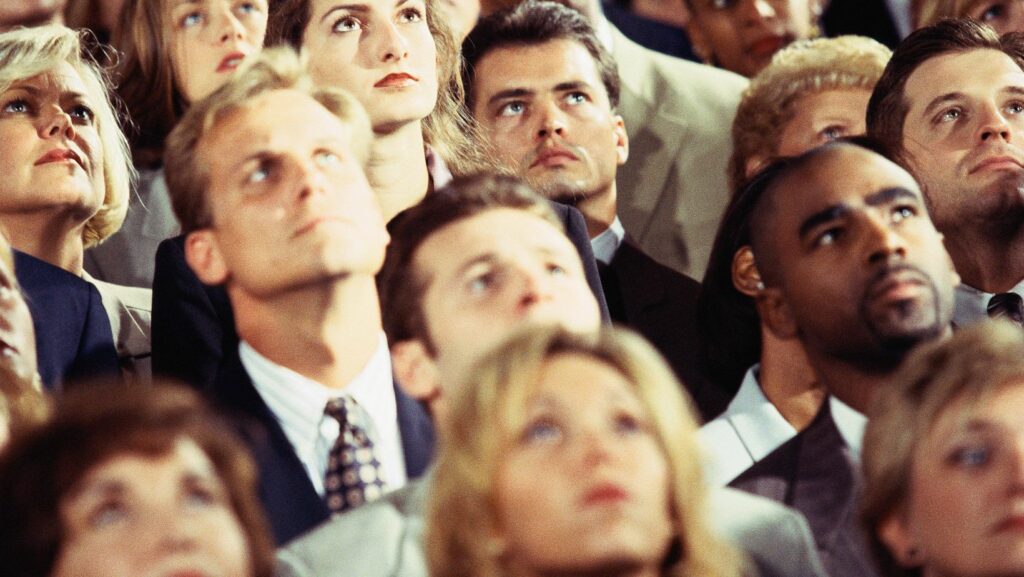
Why do People Always Stare at me
Have you ever found yourself in a situation where you feel like every pair of eyes in the room is fixed on you? It can be an uncomfortable and perplexing experience. As someone who has dealt with this phenomenon firsthand, I know how unsettling it can be to constantly wonder, “Why do people always stare at me?” In this article, I’ll delve into the possible reasons behind this behavior and provide some insights that may help you navigate through these situations with more confidence and understanding. So, let’s unravel the mystery together and shed some light on why all those eyes seem to be locked onto you.
Understanding The Psychology Behind Staring
The Fear of The Unknown
When wondering why people always stare at me, it’s important to consider that one reason can be the fear of the unknown. As humans, we tend to be curious about things that are different or unfamiliar to us. Maybe it’s your unique style or appearance that catches their attention and sparks their curiosity. Instead of taking it personally, remember that their staring may stem from a place of intrigue rather than judgment.
Unconscious Bias
Another factor to consider is the presence of unconscious bias. It’s unfortunate, but sometimes people stare because they have formed judgments or stereotypes based on their own biases or beliefs. This could be related to race, gender, or any other aspect of your identity that they perceive as different. While it’s frustrating and unfair, it’s essential to remember that their stares are a reflection of their own biases, not a reflection of your worth or value.
Curiosity And Intrigue
On a more positive note, sometimes people stare simply out of curiosity or intrigue. It could be that you possess a certain aura, charisma, or energy that draws people’s attention. Maybe you have a unique talent or skill that piques their interest. Instead of feeling self-conscious, embrace the fact that people are captivated by your presence.
There can be various reasons why people always stare at you. It could be due to their fear of the unknown, unconscious biases, or simply their curiosity and intrigue. Regardless of the reason, it is important to remember that their stares do not define your worth or value as an individual. Embrace your uniqueness, and handle the situation with grace and confidence.
Personal Insecurities And Self-Consciousness
Negative Body Image
Having a negative body image can contribute to the feeling of constantly being stared at. When I struggle with my own self-image, it’s easy to imagine that others are also judging me based on my appearance. Negative body image can stem from societal beauty standards, comparison to others, or past experiences of body shaming or bullying.
Anxiety And Paranoia
Anxiety and paranoia can intensify the feeling of being constantly stared at. In my own experience, I’ve found that anxiety can make me hyper-aware of my surroundings and interpret innocent glances as malicious stares. This heightened alertness can amplify the feeling of being watched and lead to a continuous cycle of anxiety and self-consciousness.
Low Self-Esteem
Low self-esteem can also play a role in perceiving constant stares. When I have low self-esteem, it’s easy to believe that people are judging me negatively. This can create a self-fulfilling prophecy, where my lack of confidence makes me more noticeable and draws attention, further reinforcing my belief that I am being stared at.

Dealing With Staring: Coping Strategies And Self-Empowerment
Building Self-Confidence
When it comes to dealing with the feeling of constantly being stared at, building self-confidence is key. Understanding why people stare at others can help demystify the situation and alleviate some of the self-consciousness. Remember, people’s staring is often a reflection of their own insecurities, curiosity, or simply boredom, and it doesn’t necessarily have anything to do with you. Here are some strategies to boost your self-confidence:
- Practice self-care: Taking care of yourself physically, mentally, and emotionally can have a significant impact on your self-esteem. Engage in activities that make you feel good and focus on your strengths.
- Challenge negative thoughts: Negative self-talk can worsen feelings of self-consciousness. Challenge those negative thoughts by replacing them with positive affirmations. Remind yourself of your worth and unique qualities.
- Recognize your accomplishments: Celebrate your achievements and remind yourself of the things you’ve accomplished in your life. Keep a journal of your successes and read through them when you need a confidence boost.
Developing Assertiveness Skills
Being assertive is essential in dealing with uncomfortable situations, including being stared at. Assertiveness involves expressing your thoughts, feelings, and needs in a respectful yet firm manner. Here are some tips to develop assertiveness skills:
- Practice assertive body language: Stand tall, maintain eye contact, and use a confident tone of voice when communicating with others. This non-verbal communication can convey your self-assurance.
- Set boundaries: Clearly define and communicate your personal boundaries. Let people know what behavior is not acceptable to you. This will help establish a sense of respect and deter unwanted staring.
- Use “I” statements: When expressing your feelings or concerns, use “I” statements to assert yourself without being aggressive. For example, say, “I feel uncomfortable when I notice someone staring at me, and it would be appreciated if you could stop”.
Confidently Navigate
Dealing with the constant feeling of being stared at can be challenging, but it is not impossible. Throughout this article, I have discussed various coping strategies and self-empowerment techniques that can help you navigate this situation with confidence and resilience. Remember, dealing with staring is a gradual process that requires patience and self-reflection. By implementing these strategies and seeking support when needed, you can reclaim your power and confidently navigate through any situation where you feel others’ eyes upon you.












